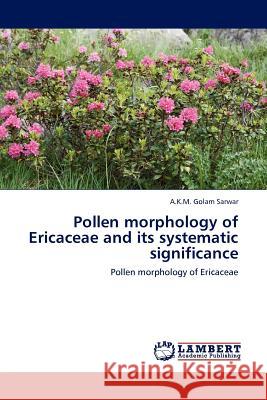Pollen Morphology of Ericaceae and Its Systematic Significance » książka
Pollen Morphology of Ericaceae and Its Systematic Significance
ISBN-13: 9783844385502 / Angielski / Miękka / 2011 / 312 str.
In the recent phylogenetic classification of Ericaceae, a few tribal as well as generic circumscriptions still remain ambiguous. A systematic study of Ericaceae pollen would prove rewarding and could clarify the currently confused generic limits. Qualitative palynological characters were found to be taxonomically more important and various palynological characters are important at different taxonomic levels. Palynological features were found significant in infrageneric classifications and to identify the monophyly of taxa. A number of evolutionary trends in different palynological features have been identified. Pollen survey revealed some interesting discoveries: i) pollen tetrads without septa in Ericaceae and other angiosperm families; ii) parallel evolution of pseudomonad pollen tetrad development in two subfamilies; and iii) pollenkitt ropes on the dried herbarium specimens. These findings improve our understanding of Ericaceae by providing new insights on the palynological features, their systematic significance and evolutionary trends, should be especially useful to Plant Taxonomist, Palaeobotanist, Palynologist, or anyone else who are interested on Ericaceae and/or pollen.
In the recent phylogenetic classification of Ericaceae, a few tribal as well as generic circumscriptions still remain ambiguous. A systematic study of Ericaceae pollen would prove rewarding and could clarify the currently confused generic limits. Qualitative palynological characters were found to be taxonomically more important and various palynological characters are important at different taxonomic levels. Palynological features were found significant in infrageneric classifications and to identify the monophyly of taxa. A number of evolutionary trends in different palynological features have been identified. Pollen survey revealed some interesting discoveries: i) pollen tetrads without septa in Ericaceae and other angiosperm families; ii) parallel evolution of pseudomonad pollen tetrad development in two subfamilies; and iii) pollenkitt ropes on the dried herbarium specimens. These findings improve our understanding of Ericaceae by providing new insights on the palynological features, their systematic significance and evolutionary trends, should be especially useful to Plant Taxonomist, Palaeobotanist, Palynologist, or anyone else who are interested on Ericaceae and/or pollen.











